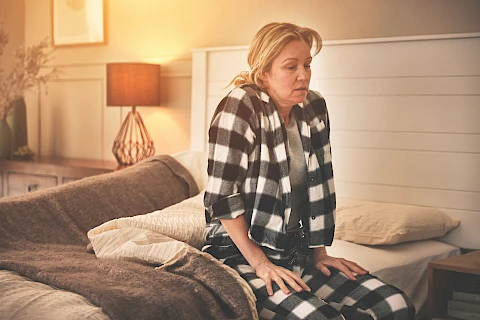
You spend a lot of time ensuring your senior loved one gets the best care, but are you looking after yourself as well?
Sleep is vital to our overall health and well-being, and for a caregiver, it is often even more essential. Juggling caregiving tasks—along with everyday responsibilities—can lead to burnout, leaving caregivers deprived of adequate rest. This deprivation can negatively impact their performance as a care provider, making their role even more challenging.
If you're a caregiver experiencing sleep issues, we have some practical tips for getting better sleep.
The Importance of Sleep
Sleep is when our bodies heal and rejuvenate, preparing us for the next day's tasks. To caregivers who consistently spend their time and energy tending to others' needs, sleep is an essential tool. It replenishes their mental and physical energy, improving their efficiency and capability to provide better care.
Common Sleep Problems for Caregivers
Many caregivers often face sleep-related issues. These can range from having trouble falling asleep and experiencing restless nights to facing constant fatigue during the day. The most common culprit for these problems is stress, coupled with the worry and anxiety that come with caregiving responsibilities.
Practical Tips for Better Sleep
Fortunately, there are strategies that caregivers can adopt to improve their sleep quality:
Establish a Regular Sleep Routine
A regular sleep routine helps regulate the body's internal clock. Try to stick to the same bedtime and wake-up time each day. Even during weekends, try to maintain this schedule to ensure consistency.
Create a Conducive Sleep Environment
Your surroundings have a significant impact on your sleep quality. Keep your room dark, quiet, and at a comfortable temperature. Consider using earplugs or an eye mask to block out external noise and light. A comfortable mattress and pillows can also make a huge difference, as can breathable, soft sleepwear.
Practice Relaxation Techniques
Deep breathing, progressive muscle relaxation, and meditation can calm the mind and prepare it for sleep. Incorporating these techniques into your nightly routine can train your body to recognize these as signals that it's time to sleep.
Maintain a Healthy Lifestyle
Your lifestyle habits can affect your sleep quality significantly. Regular exercise and a balanced diet can promote better sleep. Avoid exercising too close to your bedtime, though, as it can leave you feeling energized and prevent you from winding down. Also, limit caffeine and alcohol consumption, especially in the evening.
Seek Professional Help
If you're still struggling with sleep despite giving these tips a try, it might be time to seek professional help. Many resources are available for caregivers, including counseling services and support groups. If necessary, a healthcare professional can provide medical solutions.
Give Yourself the Gift of Respite Care
If you're a caregiver looking after a senior in Alpharetta, Cumming, Ball Ground, Canton, or Woodstock, feel free to contact us at Senior Helpers Woodstock for professional caregiving help. We understand the challenges of caregiving and are here to support you. Our team of professionals can provide assistance and respite, ensuring you get the rest you need while giving your loved one the care they require.